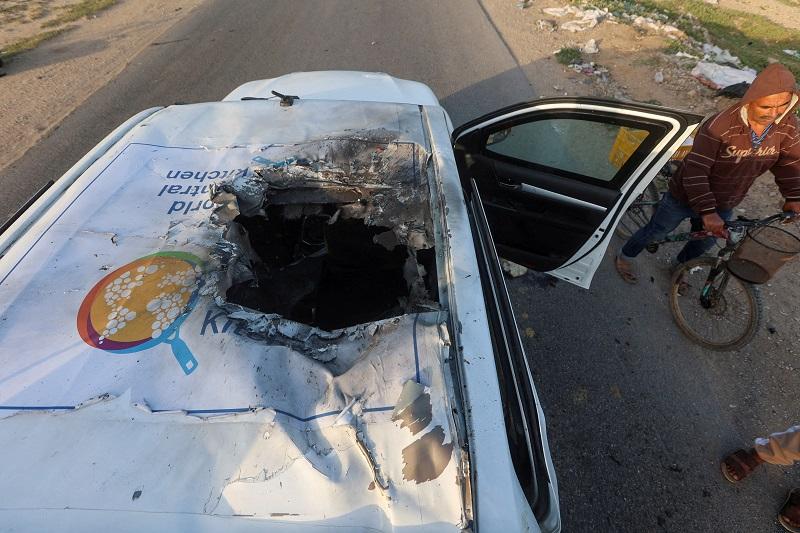UK faces pressure to stop selling weapons to Israel after aid workers killed
By ANDREW MACASKILL, Reuters Published April 4, 2024 12:30am LONDON — British Prime Minister Rishi Sunak is facing growing political pressure to stop selling weapons to Israel after seven aid workers, including three British nationals, were killed by an Israeli airstrike in Gaza. The three main British opposition parties and some lawmakers in the governing party […]


By ANDREW MACASKILL, Reuters
LONDON — British Prime Minister Rishi Sunak is facing growing political pressure to stop selling weapons to Israel after seven aid workers, including three British nationals, were killed by an Israeli airstrike in Gaza.
The three main British opposition parties and some lawmakers in the governing party on Wednesday said the British government should consider suspending arm sales.
The Liberal Democrats called for arms exports to Israel to be suspended, while the Scottish National Party also backed that move and said parliament should be recalled from its Easter break to discuss the crisis.
The main opposition Labour Party, who polls suggest will form the next government later this year, adopted a nuanced approach, saying the government should suspend arms sales if lawyers have found Israel had broken international law.
“It’s important now that, that advice is published so that we can all be clear that if there has been a breach in international humanitarian law—and I must say that I do have very serious concerns—that arm sales are suspended,” said David Lammy, the Labour foreign policy chief, told reporters.
The strike on the convoy of people working for aid group World Central Kitchen killed citizens of Australia, Britain and Poland as well as Palestinians and a dual citizen of the US and Canada. Israeli Prime Minister Benjamin Netanyahu said that the strike was tragic and unintended, and the Israeli military pledged an independent inquiry.
WCK said its staff were travelling in two armored cars emblazoned with the charity’s logo and another vehicle, and had coordinated their movements with the Israeli military.
Arms sales kept under review
Sunak on Wednesday resisted calls to immediately suspend weapons sales to Israel. He said that arms exports to the country are kept under review.
“We’ve always had a very careful export licensing regime that we adhere to,” Sunak said in an interview with the Sun newspaper. “There are a set of rules, regulations and procedures that we’ll always follow.”
A majority of people in Britain back a ban on weapon sales to Israel, according to a poll published in The Guardian.
Fifty-six percent of people are in favor of a ban compared with 17% opposed, the poll found.
The British government has sold weapons and military components worth more than £570 million ($719 million) to Israel since 2008.
Defense minister Grant Shapps told parliament in November that defense exports to Israel were “relatively small” at 42 million pounds in 2022, the last full-year data available.
Military exports to Israel, which included components for explosive devices, assault rifles, and military aircraft, were about 0.4% of Britain’s total global defense sales that year.
During a previous conflict in Gaza in 2014, the British government said it would suspend some arms exports to Israel if hostilities continued. But ultimately, arm sales were not restricted during that conflict. — Reuters














